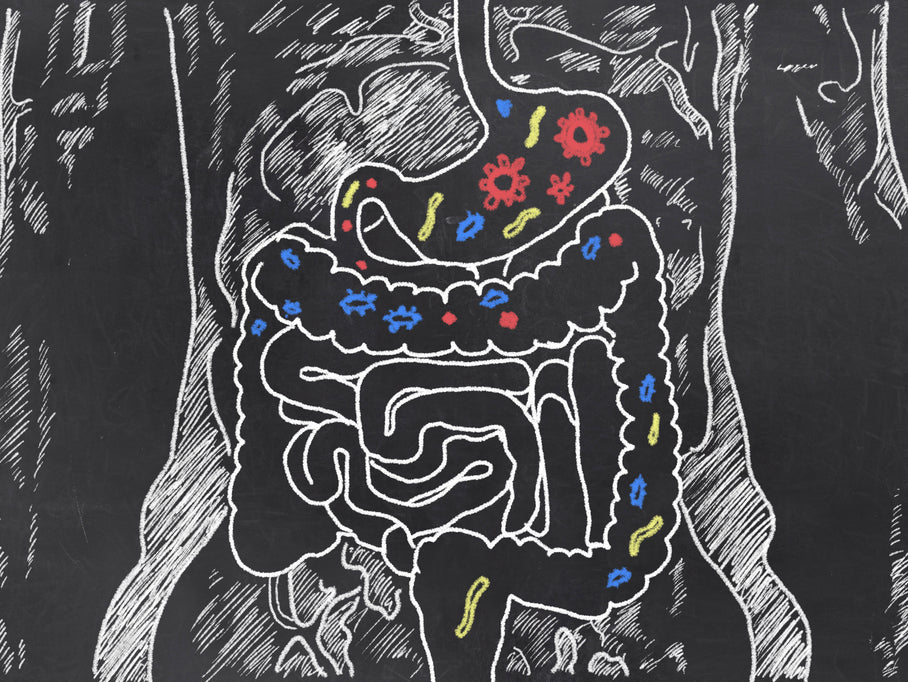Ophelia Gherman, M.D.
August 10, 2017
Hippocrates once said: “All disease begins in the gut.” As more westernized countries are suffering from poor diet choices, chronic stress, toxic overload, and bacterial imbalance it appears that intestinal compromise is an important factor to blame. Many of us could be experiencing chronic internal intoxication from our gut, which can be just as detrimental as environmental toxic exposures.

The Father of Modern medicine, Hippocrates, once said: “All disease begins in the gut.” As more westernized countries are suffering from poor diet choices, chronic stress, toxic overload, and bacterial imbalance it appears that intestinal compromise is an important factor to blame. Many of us could be experiencing chronic internal intoxication from our gut, which can be just as detrimental as environmental toxic exposures.
The small and large intestines are a complex ecosystem comprised of a diverse array of micro flora, immune cells, and nerve cells that are protected by a frontline barrier called the intestinal wall. Through it, we are protected from bacterial and toxic dissemination. The intestinal barrier is thin and composed of tightly connected cells. A large army of intestinal immune cells, called dendrites, also aid in this tight patrol.
Inflammation and irritation of the intestinal wall result in perforations, or gaps, in the wall through which bacteria and toxic by-products can freely escape. Imbalance in gut flora, poor diet, toxins, and medications are among the many causes of intestinal inflammation.
Subsequently, large quantities of inflammatory markers are released into the bloodstream leading to a cascade response affecting our liver, lymphatic system, endocrine, immune, and nervous systems. Some of the most common medical disorders related to leaky gut syndrome are Crohn’s and Ulcerative colitis, autoimmune disorders, food allergies, and chronic fatigue. The Journal of Diabetes points to leaky gut syndrome as a major cause of Type 1 Diabetes and other autoimmune disorders.
One of the culprits of leaky gut syndrome is an imbalance of the intestinal flora. This means that the helpful bacteria are outnumbered by the harmful bacteria. Dysbiosis, or microbial imbalance, is induced by antibiotic use, poor diet, stress, and chronic constipation. These harmful bacteria release toxins which hijack the immune dendrite cells disqualifying them as the protective sentinels in our intestines.
Antibiotic use is well known to disrupt bacterial numbers in healthy individuals. Unfortunately, antibiotics are overused in inappropriate situations such as viral infections and the effects of just one antibiotic treatment can deplete your microflora for months.
Chronic constipation is another common cause of dysbiosis. Constipation can be physically and emotionally burdensome, leading to abdominal discomfort and appetite changes. Chronic constipation leads to an accumulation of unhealthy bacteria and toxins in the gut, which leads to intestinal inflammation and poor nutritional absorption from the small intestines.
High dietary sugar and processed fats can alter the intestinal biome, producing a more hostile environment for helpful bacteria. Likewise, the use of sugar alcohols, such as xylitol, found in dental and medical products as well as many gums, are harmful to healthy bacteria. Recently, studies show that those who consume “diet” sodas have a higher risk for obesity and diabetes due to the alteration in gut flora.
Fortunately, you can improve intestinal health by following these steps. The first goal is to remove all the offending agents from your diet. This means eliminating processed foods, sugars, and gastric irritants like alcohol, caffeine, or drugs. You may also consider eliminating other inflammatory foods such as gluten, dairy, soy, and corn. The next step involves replacing the intestinal bacteria. This may include a high dose probiotic, usually between 50-100 billion units of the Bifidobacteria and Lactobacillus species. Additionally, supplementing with digestive enzymes can help relieve symptoms of bloating, indigestion, reflux, and constipation.
The next step is to aid in intestinal repair with anti-inflammatories, healthy fats, and mucilaginous plants such as aloe vera and slippery elm. These plants are high in polysaccharides which augment and enhance intestinal protection while the intestinal wall repairs and heals.
Science continues to unlock the key between our health and our gut. There is growing evidence that our intestinal health depends on the food we eat, the lifestyle we lead, and the bacteria we breed. Regaining complete health and intestinal balance isn’t an accidental process, but rather depends on intentional choices we can all start making today!
References: Kunisawa J. & Kiyono H. Vitamin-Mediated Regulation of Intestinal Immunity. Front Immunol 4, 189 (2013). Lin WT, Liao YJ, Peng YC, Chang CH, Lin CH, Yeh HZ, Chang CS. Relationship between use of selective serotonin reuptake inhibitors and irritable bowel syndrome: A population-based cohort study. World Journal of Gastroenterology. 2017 May 21; 23(19): 3513-3521 Bakdash G., Vogelpoel L. T., van Capel T. M., Kapsenberg M. L. & de Jong E. C. Retinoic acid primes human dendritic cells to induce gut-homing, IL-10-producing regulatory T cells. Mucosal Immunol 8, 265–278 (2014) Bischoff SC, Barbara G, Buurman W, Ockhuizen T, Schulzke J-D, Serino M, et al. Intestinal permeability–a new target for disease prevention and therapy. BMC Gastroenterology. 2014;14(1):189 Kennedy PJ, Cryan JF, Dinan TG, Clarke G. Irritable bowel syndrome: a microbiome-gut-brain axis disorder? World J Gastroenterol. 2014;20:14105–14125



